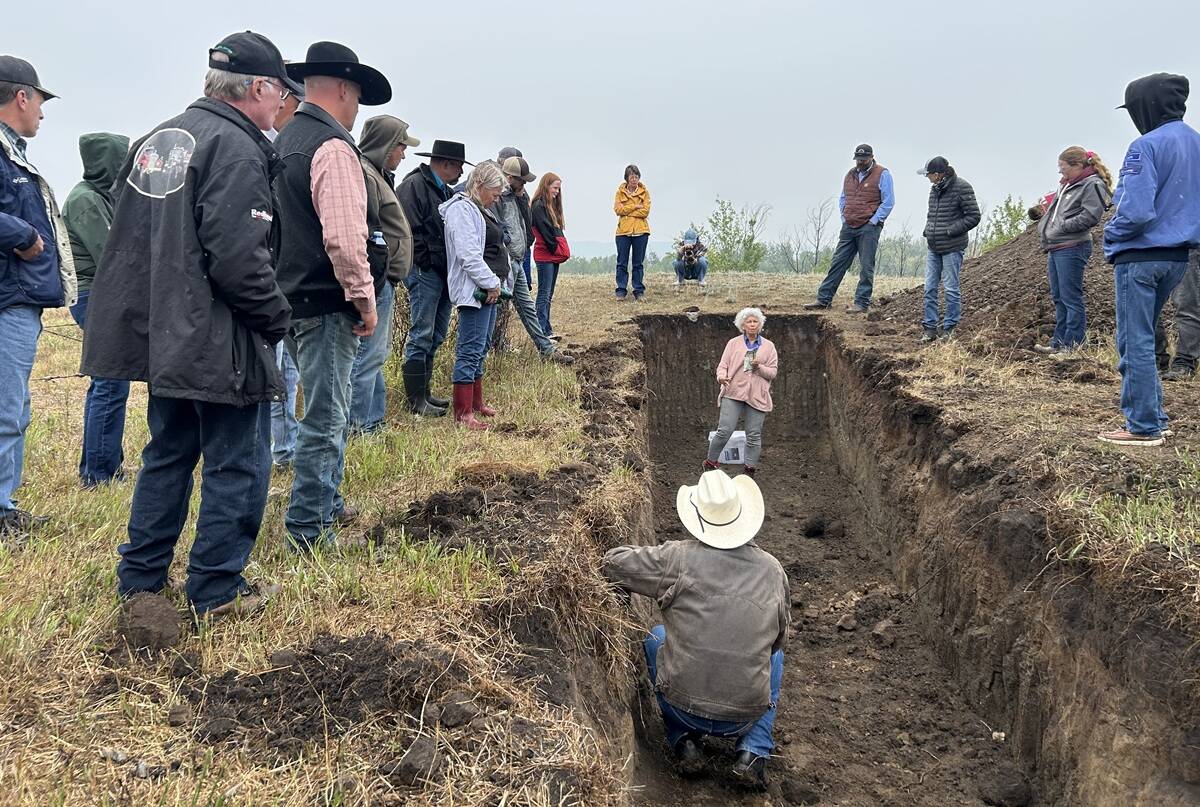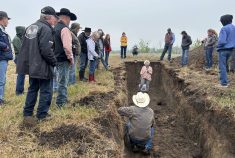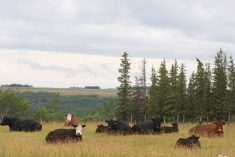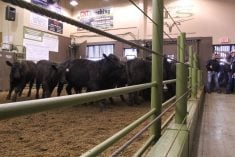What a time to be editing a monthly print magazine focused on the beef industry. By the time our April 2025 issue comes out, we may be, again, in the midst of more tariff threats, or even escalating tariffs. Perhaps President Trump will have modified or switched tactics by then. Who knows? I sure don’t.
Kelly Sidoryk and I were filming videos for her Depth of Field columns recently, and chatting about the trade chaos. She pointed out that now is a great time to focus on our circles of control and influence, a topic she’s written about in past columns.
Here’s a brief refresher. The circle of concern includes the things we worry about — in this case, trade, tariffs — but can’t control. If you’ve heard the phrase, “It is what it is,” you know what I’m writing about.
Read Also

Improving soil health on the ranch
Yamily Zavala, PhD, talks soil health for farmers and ranchers at a grazing club field day at Paradise Hill, Saskatchewan.
That doesn’t mean we should ignore these things, or try to be completely detached, but there’s not much point wasting a lot of energy on things we can’t do anything about. Most of us have very little influence on Canada-U.S. trade, with the exception of some readers who are part of industry associations. More on that in a minute.
The circle of control is a much smaller sphere, and this is where we should put a lot of our effort. Farmers and ranchers do this all the time. For example, you can’t control the weather. But if you’re coming out of drought, you may be able to delay spring grazing to help native pastures recover (see Reynold Bergen’s latest Research on the Record column for more on this).
Melissa Jeffers-Bezan has just completed a four-part series on disasters with many examples of people doing what they can in bad situations. The culminating story, on B.C.’s Range Rider program, is on the cover of our April issue. There is no shortage of horrible problems and dangers brought on by wildfires, many of which ranchers can do nothing about. But ranchers can call in qualified help, through this program, to move as many of their cattle as possible to safety. Unsurprisingly, some of the same people who lend a hand as “range riders” have also been recipients of the same type of help during wildfires. It’s one more example of neighbours helping neighbours. A reminder that most people are good people, and we’re all better off when we can work together — all things we need right now.
Finally, we have the circle of influence. It’s a grey area of sorts where we don’t have direct control over the outcome, but we’re not powerless, either. For example, the people at Canada Beef have developed plans to respond to both the uncertainty created by tariff threats, as well as trade disruptions from tariffs. Hopefully we don’t see trade disruptions, but they’re already working on boosting Canadian beef demand in our domestic market, among other things.
By the time you read this, the Canadian Cattle Association (CCA) will have a new president. Nathan Phinney’s last column I think it perfectly illustrates how to operate within one’s circle of influence. Phinney writes that CCA’s reps are invited to the table and asked for their opinions in many discussions, but that doesn’t mean that every conversation goes their way.
“During my time as president, there were times when we walked away from discussions, times when our requests were denied and times when we had to compromise. But every time we are given an opportunity to speak, we are listened to with respect. For CCA, having the opportunity to speak and being listened to with respect is a form of success even if we don’t always achieve our goals at the first meeting or during the first round of discussions.”
Phinney and the others at CCA can’t control the outcome of any discussion, including the ones on tariffs. But they can show up to the meeting, prepare well and act in a way that is both persuasive and more likely to gain respect.
Stephen Covey, author of The Seven Habits of Highly Effective People, made an interesting point about the “circle of influence,” which I think still holds true, even in these polarizing times. If you’re always focused on the things you can’t control, your circle of influence will shrink. But by focusing on areas you can affect, you expand your influence. In other words, people respect and listen to you more, because you’re more proactive and perhaps more equanimous, and so you become more influential. We also just get better at the things we practice, whether it’s throwing a baseball or trying to adopt a certain mindset. Most of us know this, but it’s a good reminder, especially in this age of social media drama and confronting politics.
Please don’t take any of this to mean you should ignore the things you’re concerned about, but don’t have direct control or influence over. Being well-informed is a choice we can all make, whether it’s about politics, social issues or agricultural industry news. Besides, we all get a vote, from the municipal to federal levels, and we shouldn’t take that for granted. And as producers, you have industry associations that should represent your interests, and which you can contact with questions and concerns.















